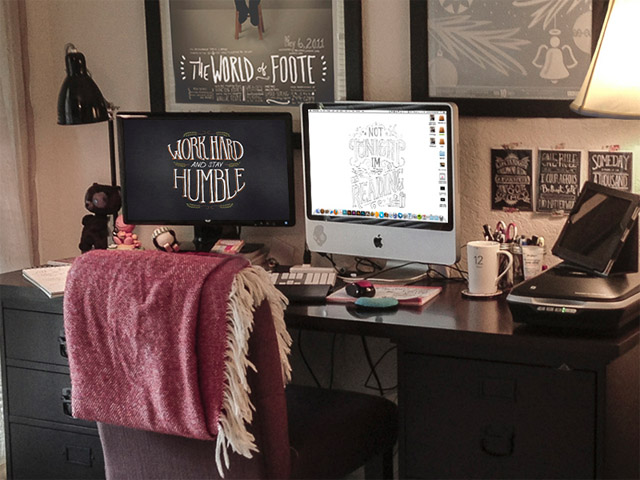
Right now, millions of people across the world are working from home due to the COVID-19 pandemic. The process has been stressful, as companies scramble to ensure employees can safely and securely work from home.
While the present situation is not completely typical of what it’s like to work from home, it has opened people’s eyes to the possibility that this is how they would like to work from now on.
Hopefully, businesses that were reticent to adopt a flexible working policy, will now be open to it once the pandemic is over. After all, there are a whole host of benefits for both employees and employers.
Remote working has become increasingly popular in recent years, and for good reason. It offers a number of benefits for both employees and employers, including increased productivity, reduced costs, and improved work-life balance. However, remote working can also be challenging, especially for those who are not used to it. This guide will provide you with tips on how to succeed at remote working, so that you can reap all the benefits that it has to offer.
Here are some of the benefits of remote working:
- Increased productivity: Studies have shown that remote workers are often more productive than their office-based counterparts. This is because they have fewer distractions and can work in an environment that is more conducive to their productivity.
- Reduced costs: Remote working can save employers money on office space, utilities, and other expenses. It can also save employees money on commuting costs and other expenses.
- Improved work-life balance: Remote working allows employees to have more control over their work-life balance. They can choose to work from home, which can save them time and money on commuting. They can also choose their own hours, which can give them more flexibility to attend to personal matters.
Here are some of the challenges of remote working:
- Isolation: Remote workers can feel isolated from their colleagues and from the company culture. This can lead to loneliness, stress, and anxiety.
- Distractions: Remote workers can be more easily distracted by things like pets, children, and household chores. This can make it difficult to focus on their work.
- Lack of structure: Remote workers can find it difficult to stay on track and to manage their time effectively. This can lead to procrastination and missed deadlines.
Here are some tips on how to succeed at remote working:
- Set up a dedicated workspace: Having a dedicated workspace will help you to stay focused and productive. It should be a quiet place where you will not be interrupted.
- Create a routine: Having a routine will help you to stay on track and to manage your time effectively. Set aside specific times for work, breaks, and socializing.
- Communicate regularly: Make sure to communicate regularly with your colleagues and manager. This will help you to stay connected and to avoid feeling isolated.
- Take breaks: It is important to take breaks throughout the day, especially if you are working from home. Get up and move around, or step outside for some fresh air.
- Set boundaries: It is important to set boundaries between your work life and your personal life. This means not checking work emails or taking work calls outside of work hours.
- Take care of yourself: Make sure to take care of yourself both physically and mentally. Get enough sleep, eat healthy foods, and exercise regularly.
So if you’re thinking of finding a career that lets you work from home, you’re going to need to put some thought into how you’re going to make it work. Once the novelty of being able to roll straight out of bed and switch on your laptop wears off, you’ll need to have a strategy in place for staying healthy and
Get your tech set up right

Health Tips For Those Who Work At A Computer All Day
Whether you are working from your sofa or a high-tech home office set up with additional phone lines and multiple screens, you’re going to need some of the basics.
Internet connection
The first thing you need is a fast, reliable internet connection. Successful home working pretty much depends on it. Luckily, there are a lot of options available for consumers now that give great speeds and unlimited data.
Make sure you pick a package that is suitable for both work requirements and your social needs. You don’t want your connection to slow to a crawl if someone is streaming Netflix in another room.
Broadband signals can be temperamental too. You may have super-fast speeds in one room, only to find the signal drops off to a snail’s pace in another. Lots of things can affect your wifi signal throughout the house, from walls to electrical equipment. Invest in something like a Wi-fi ultraboost to ensure you’ve got great speeds wherever you are in the house.
Laptop
Many people now prefer using laptops and tablets rather than an old fashioned desktop PC which takes up a lot of space and are not especially easy to move around.
They’re also cheaper than ever before. Depending on the type of work you do, a standard spec laptop should be suitable for you. Look for models with a decent amount of RAM and enough storage.
If you do like to have more of a desktop setup, buy a separate screen and wireless keyboard and mouse. This way, you’ll have the best of both worlds.
Communications
Most people have smartphones now which are great for communicating on the go and taking calls. If you’re going to be on the phone a lot, invest in a headset or quality set of wireless earphones with a built-in microphone.
Set up your workspace
Space is probably at a premium in most houses. If you do have a room that you can devote to a home office, fantastic. But even if it’s just some space on the dining room table, set it up to help you focus, maintain good physical posture, and avoid distractions. It also makes it easier to ‘disconnect’ from work at the end of the day.
Set a routine
It might seem counter-intuitive to set yourself a strict schedule. After all, one of the best things about remote working is being able to do what you want, when you want.
Once the novelty of this freedom wears off, it’s easy to get into really bad habits that are bad for your health and your productivity. You may think that remote working gives you a chance to go to the gym in the morning and keep fit, but it is just as likely, that you’ll end up sitting at your laptop all day, within arms reach of the fridge and on first name terms with the guy who delivers your take-out four times per week.
By setting yourself a schedule, and sticking to it as best you can, you can really enjoy the benefits that remote working can offer. You can free up time for your own health and wellbeing, making you more productive when you are working. It will also help you switch off at the end of the day. Just because we can constantly connect to our work and colleagues, doesn’t mean that we should.
You will find that over time, you will know what works for you. Some people prefer to get up early, get dressed for the day ahead. Others will sit in their PJs. Again, it’s whatever you need to do to get in the right headspace.
Minimize home distractions
There are a million things to distract you at home. TV, the sudden urge to do dishes, or the constant running back and forward to the cupboard for snacks.
If you are working with children in the house, then it’s a whole new level of distraction to deal with. They never seem to have any respect for your schedule. Try and plan out their day in advance so that you can still get some productive time during the periods that they may be napping or playing.
Don’t check your email or social media every five minutes either. It’s natural to want to stay connected and in the loop at work, but before you know it, the day’s gone by and you don’t really have very much to show for it. Then you end up working late, which can set off a cycle of overwork and burnout.
Set your working hours
Remote working is great for flexibility but spending every day working in an ad hoc, unorganized way is unsustainable over a long period.
Decide what hours you’re planning to work and set your work schedule to work with this. Soon, your co-workers will know when you’re likely to be available and when you need to get your head down and concentrate on work.
Schedule in breaks too. You’re more likely to stick to them if they’re on your schedule. It’s not as if you can get up from your desk and have a chat with a co-worker over a coffee.
Learn how to communicate, remotely

Tips on how to Co-ordinate Your Remote Team to Work Effectively
Each way of communicating has its own set of nuances. A telephone call is different from an email that is different from a video conference. Brushing up on your videoconferencing skills will prevent badly lit meetings where everyone talks over each other and no one knows exactly where to look.
Try not to let personal tasks take over
Again, you might think that one of the benefits of remote working is being able to do your personal tasks that you don’t have time for with a regular 9-5. While it’s great to be able to take care of things that crop up without having to schedule time off work, but its another case of things distracting focus from your work.
If you’re constantly doing laundry, sorting out paperwork, or doing errands, your work is going to suffer. If you have personal tasks that need to be done, schedule this time in your day.
Set boundaries with friends and family
This is something that can creep up on you as you start homeworking. Sometimes, others aren’t aware of exactly what homeworking entails. You’ll soon start getting requests to run an errand, look after a friend’s child, meet someone for a drink at an inconvenient time, or your parents ringing in the middle of the day for a long conversation.
Be clear with your schedule and that you can’t just drop everything at a moment’s notice for something that isn’t an emergency – you are still expected to do your work.`
Look after yourself

We’ve already discussed how easy it is to be sat in one place, constantly snacking. Joking aside, unless you’re the kind of person who absolutely has to be active every day, then the reality is that you may well pick up some bad habits when you start working from home.
Get moving every day. Exercise, go for a walk. Drink water instead of soft drinks of coffee. It’s all pretty basic stuff but it’s amazing how many people get used to being sedentary, which affects their overall health, and starts a decline in their overall physical and mental fitness.
If good food choices are a problem for you, then just do what you would if you were going into an office. Make your lunch and snacks in advance, so you aren’t tempted to reach for sugary snacks and take out because you don’t have time for anything else.
Get out and network

Networking Tips for Small Business Leaders
If you work from home, but your company is fairly local to you, then arrange to meet up with your colleagues regularly. Face to face contact is still great for building relationships.
If your company is spread across many countries and timezones, then you won’t be able to meet up outside of scheduled work retreats. In this case, find local professional networking groups around you that you can attend in person and keep you networking and business skills sharp.





